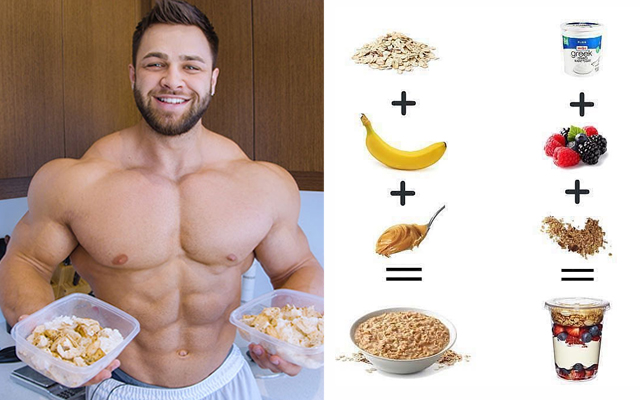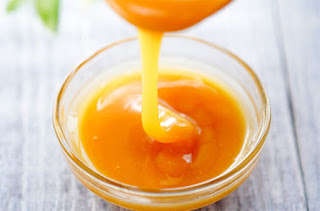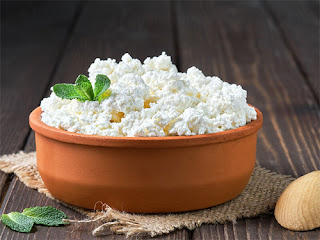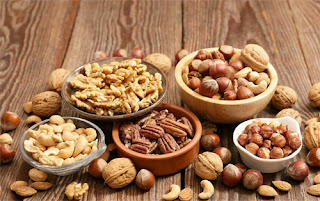It's true: If you eat the correct post-workout snacks, you won't be hobbling around for days after you smash your legs. Nutritionist Kristen Carlucci, RD, discusses a variety of foods you may consume throughout the day to help you recover from your workouts, whether you prefer to exercise first thing in the morning, later in the afternoon, or later at night. Start feeling the difference by stocking your fridge and pantry with these muscle-recovery items.
10 Best Muscle-Recovery Foods
1. Manuka Honey
Manuka honey isn't the same as the sticky stuff in your pantry. It's a monofloral honey, which means it's made mostly from the nectar of a single plant species in New Zealand called the Manuka bush. Manuka honey has a distinct flavor that is milder than regular honey and is thicker as well. It's regarded as one of the world's most healthy honey varieties. "Manuka honey is a powerful anti-inflammatory that helps the body decrease exercise-induced inflammation," Carlucci explains. "It's also high in carbs, which are essential for replenishing glycogen stores and delivering protein to muscles." Pour some over yogurt or into a cup of tea.
2. Cottage Cheese
"Whey and casein" are two forms of protein found in cottage cheese, according to Carlucci. "While whey protein is well-known for swiftly refilling muscles after an exercise, casein is a much slower-acting protein, making cottage cheese a great snack before [you work out] since it helps your muscles to recuperate even while you sleep." Cottage cheese also contains live cultures (good bacteria) that aid in the digestion and absorption of nutrients that can help you grow larger and stronger. Breakfast or a lunchtime snack, eat it alone or with fruit on top.
3. Tart Cherries
Tart cherry juice, according to research published in the Journal of the International Society of Sports Nutrition and more recently in Antioxidants in Sports Nutrition, can help runners reduce post-run muscle pain, delay fatigue, and promote muscle recovery; it also has the potential to help lifters improve performance and reduce post-exercise recovery time. You can also eat dried fruit as a snack. "Eating dried sour cherries after a workout will significantly minimize muscle breakdown, discomfort, and inflammation," Carlucci claims. Eat them on their own or mix them into your post-workout cereals or salads. (However, keep in mind that dried fruit contains a lot of sugar.)
4. Nuts & Seeds
"To mention a few things, nuts and seeds give vital Omega-3 fatty acids to fight inflammation, protein for muscle synthesis and growth, electrolytes for sufficient hydration, and zinc to promote immunity," Carlucci explains. Nuts and seeds are not only a good source of protein and fiber for vegans and vegetarians, but they're also a wonderful plant-based snack for meat-eaters on the road.
5. Turmeric
According to a study published in the European Journal of Applied Physiology, turmeric contains the anti-inflammatory antioxidant curcumin, which has been found to reduce delayed onset muscle soreness. "The compounds in this spice help reduce muscle damage and inflammation while also promoting muscle repair, resulting in improved athletic performance," Carlucci says. Curcumin also reduces inflammation and pain by inhibiting pro-inflammatory enzymes and chemical pain signals. Isn't that impressive? Carlucci recommends using turmeric in soups or making a turmeric latte (also known as "golden milk") with 2 cups warm cow or almond milk, 1 teaspoon turmeric, and 1 teaspoon ginger.
6. Spinach
"Spinach is one of the most popular superfoods, and for good reason," Carlucci explains. "This antioxidant powerhouse battles free radicals in your body to not only avoid catastrophic diseases like cancer and heart disease but also to swiftly recover from intense activity." According to this study from the Karolinska Institute in Stockholm, it's also a wonderful diet staple for supporting good health and muscle strength (because of its nitrates). Spinach is high in magnesium, which supports regular muscle and nerve function and has also been linked to improved blood sugar and blood pressure control. Make a salad with it, serve it as a side dish, or add a handful to your smoothie.
7. Salmon
"Salmon is high in inflammation-fighting omega-3 fatty acids, as well as lean protein, which is essential for muscle regeneration and growth," Carlucci notes. Cook some salmon for lunch or dinner if you're working out in the early or late afternoon. "Just make sure you eat protein within 45 minutes after finishing your workout for proper recuperation and strength," Carlucci suggests.
8. Sweet Potatoes
Say goodbye to tired muscles by using sweet potatoes in your post-workout supper. "The starchy vegetable refills glycogen stores, which are depleted after a strenuous workout, and is a good source of beta carotene and vitamin C to maintain your body healthy and robust," Carlucci explains. Grill them or slice them up and bake them with olive oil and seasonings in the oven. Add a lot of salt and pepper, garlic, paprika, chili powder, garlic powder, and/or cinnamon to see what you can come up with.
9. Green Tea
"Green tea is high in anti-inflammatory antioxidants, making it an excellent pre- or post-workout drink for preventing exercise-related muscle and cell damage," Carlucci explains. "It also aids athletes in being hydrated, which is essential for training and recovery." It can be served hot or cold.
10. Cacao
"Cacao is abundant in antioxidants, magnesium, and B vitamins, which help to minimize exercise-related stress, regulate electrolytes, and increase energy levels," Carlucci explains. Flavanols, a type of antioxidant, can even help your body produce more nitrous oxide, which causes your blood vessel walls to relax and open, decreasing blood pressure and improving general health. Cacao nibs can be added to your smoothie, or a scoop of cacao powder can be mixed into a glass of milk after a workout.
Related article: 10 Post-Workout Foods for Muscle Gain
















.jpg)
0 Comments